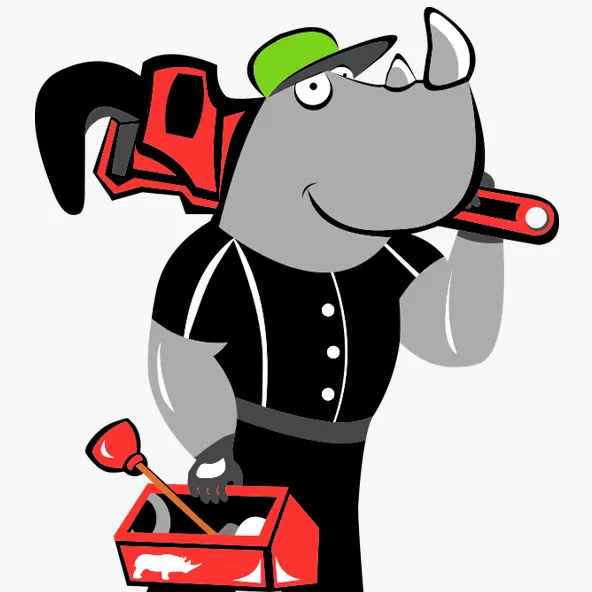Safe, Hygienic Sewer Unblocking & Repairs
A sewer blockage could be caused by any number of things obstructing the flow of sewerage from the property. It's important to work out what it is so you can have your sewer drains cleared out and returned to working order.
Sewer blockages are the property owner's responsibility to take care of. If a blockage is in the sewer main (normally outside the property boundary), it is the responsibility of your local council or water authority.
In this article, we'll go over what you can expect from a blocked drain, how to identify one, and what to do in the event your sewer system or sewer pipes become blocked.

What Causes a Sewer Blockage?
The most common causes of sewer blockages include:

A build-up of fat, oil and grease
Fat, oils and grease can all solidify when they cool down. Many homeowners dispose of cooking fats in the sink, which is fine until it's time to wash up. The water mixes with the fragments of food still stuck to your plates or utensils, and without proper care can cause massive blockages.

Tree roots
As trees grow, their roots can find a way up the drains and cause blockages. This usually happens when the roots break into the pipes, allowing dirt and debris to make their way in and catching waste as it comes through, forming a blockage.

Food debris
Food that hasn't been washed off before going into the drains can block them too. Food scraps or other types of food debris from cooking or dining can end up clogging the drain if they're big enough. Thankfully most sinks have some kind of filter these days, so the risk is low.

Disposable wipes and other foreign objects
While they might be called disposable, you really shouldn't be flushing wet wipes down the drain. Disposable wipes don't break down well, instead getting caught in your drains and forming blockages over time. This effect is amplified if you're flushing other things as well, such as rubbish.
Why Choose Rhino Plumbing?
We are one of the leading plumbing and drainage specialists in Sydney, offering a range of services designed to get your drains working again fast. Our training and qualifications combined with many years of on the job experience ensure we can give you the right advice and information regarding your commercial and residential drainage requirements.
- Local, Family-Owned Plumbers
- 24-Hour Emergency Plumbing
- Clean and Efficient Service
- Up- Front Pricing, No Hidden Costs
- Always On Time!
- No Call Out Fees for Accepted Quotes
How to Recognise a Sewer Blockage
There are a number of ways to tell if you have a blocked sewer. The most is toilets, sinks, or shower/bath drains not working like they normally do. If you can't flush your toilet or it takes a very long time to drain, then chances are there's something down there blocking the flow. Other indicators include:
- Overflowing drains
- Strange smells or noises coming from drains
- sewage rising up through the overflow relief gully in your yard.
What is an Overflow Relief Gully?
An overflow relief gully (ORG) is a device used to release any sewage overflow into the surrounding area, away from your home and into the garden. If your ORG is releasing water and waste, there's a good chance you have a blockage somewhere in your sewerage system.
What Can You Do if Your Sewer is Blocked?
When it comes to blocked sewers, you've got two options:
- You can contact an emergency blocked drain plumber, or;
- You can try and unblock the sewer yourself.
A licensed plumber will be able to identify the cause of the blockage quickly and clear it out. A great plumber will even repair any damage to ensure your sewer drains stay unblocked.
If you're set on trying to unblock your drain yourself, we recommend not doing anything drastic. Plungers and drain cleaner are good for small blockages, but they may not solve the problem completely if the blockage is caused by a break in the pipes. Trying to clear out the blockage with drills or by digging up the pipe can leave you with pipes more broken than when you started.
We always recommend hiring an experienced plumber to take care of blocked sewers, as this will ensure you will get the best results and prevent further damage to your sewerage system.
Call the Team at Rhino Plumbing Today
If you have a blocked sewer, the team at Rhino Plumbing and Drainage can take care of it and provide you with a complete unblocking solution. We look at your complete sewerage system, including the sewer connection point, piping on your property, sewer network and more to unblock your drains and make sure they stay that way. As members of the Master Plumbers Association, we're qualified to take on any plumbing job. Discuss your needs with our team today for a competitive no-obligation quote.

Get in Touch Today!
Our Services
Plumbing ServicesDrainage Services
Hot Water Systems
Blocked Sewerage
Blocked Stormwater
We Accept
We Accept
Trading Hours
Standard Trading HoursMonday - Saturday
6:00am - 8:00pm
Sundays and after hours emergency service available on request.
24 Hr, 7 Day Emergency Service
Connect
Contact Us
Rhino Plumbing & Drainage Pty. Ltd.BLUESTONE INDUSTRIAL ESTATE Factory E21, 20 Picrite Close,
Pemulwuy NSW 2145
Office: (02) 9688 5118
Mobile: 0404 472 252
help@rhinoplumbers.com.au
www.rhinoplumbers.com.au
Licence: 292681C
ABN: 12 609 001 943




